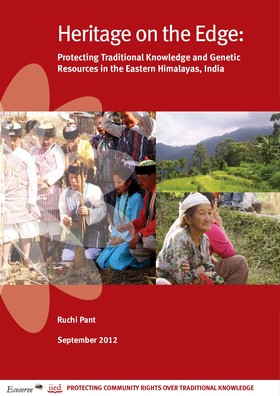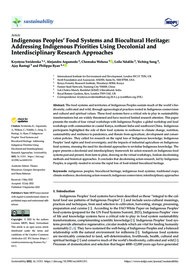Heritage on the edge: Protecting traditional knowledge and genetic resources in the Eastern Himalayas, India

The Eastern Himalayan belt is the centre of origin for a number of crops, including rice. This study explored the customary laws and farming practices of Lepcha and Limbu communities, and what they mean for the design of mechanisms to protect traditional knowledge (TK) at national and community levels. It was conducted in five villages in Kalimpong (District Darjeeling, West Bengal state) and two villages in the neighbouring state of Sikkim. The participatory action research entailed village meetings, focused group discussions, semistructured interviews and household surveys, and involved a range of stakeholders.
Follow the links below for more about our work on Biocultural heritage.
This report outlines the study's methodology and findings on the status and trends relating to TK, genetic resources and farming systems. It reviews the existing policy framework for TK protection, and explores responses based on customary laws and the need to go beyond these. Non-legal tools developed for TK protection are presented, along with key conclusions and proposals for ways forward.
Cite this publication
Available at https://www.iied.org/g03442






